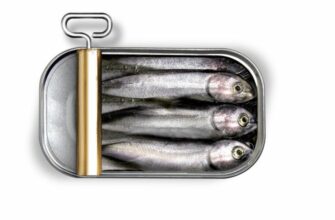Ear wax, also known as cerumen, is a natural substance produced by the glands in our ear canal. It serves to lubricate and protect our ears from dust, bacteria, and other foreign particles. However, sometimes too much ear wax can build up and cause discomfort or even affect our hearing. In this article, we will discuss the importance of ear wax removal and some methods of safely removing ear wax.
When Should You Consider Ear Wax Removal?
It is normal to have some ear wax in our ears. However, if you experience symptoms such as earache, ringing in the ear, hearing loss, or itching, it may be a sign of excessive ear wax build-up. In such cases, you may need to consider ear wax removal.
How to Remove Ear Wax Safely?
There are several ways to safely remove ear wax at home. One of the most common methods is to use over-the-counter ear drops. These drops contain ingredients that help soften the ear wax, making it easier to remove. You can also use a warm washcloth or ear bulb syringe to irrigate your ear canal.
When to Seek Professional Help for Ear Wax Removal?
If you have tried at-home methods and still experience symptoms, it may be time to seek professional help. A doctor can use special instruments to remove ear wax safely and effectively.
What are the Risks of Improper Ear Wax Removal?
Improper ear wax removal can lead to several complications, including ear infections, ear drum perforation, and temporary hearing loss. It is important to be gentle and cautious when attempting to remove ear wax at home.
Are Q-Tips Safe for Ear Wax Removal?
Q-tips or cotton swabs are not recommended for ear wax removal. They can push the ear wax further into the ear canal, causing more harm than good. It is best to avoid using them altogether.
Can Ear Candling Remove Ear Wax?
Ear candling is a practice that involves inserting a hollow candle into the ear canal and lighting it on fire. However, there is no scientific evidence to support its effectiveness in removing ear wax. It can also be dangerous and lead to burns, ear canal obstruction, or even hearing loss.
Can Ear Wax Build-Up Cause Hearing Loss?
Yes, excessive ear wax build-up can cause hearing loss. The ear wax can block the ear canal, preventing sound waves from reaching the eardrum. In such cases, ear wax removal may be necessary to restore hearing.
How Often Should You Remove Ear Wax?
There is no one-size-fits-all answer to this question. The frequency of ear wax removal depends on several factors, including the amount of ear wax produced, the shape of the ear canal, and individual hygiene habits. It is best to consult a doctor if you are unsure.
Can Ear Wax Be Prevented?
While it is not possible to completely prevent ear wax, there are steps you can take to minimize its build-up. These include avoiding the use of cotton swabs or other objects to clean your ears, keeping your ears dry, and avoiding exposure to dust and other irritants.
Is Ear Wax Removal Covered by Insurance?
In most cases, ear wax removal is not covered by insurance unless it is deemed medically necessary. It is best to check with your insurance provider to determine your coverage.
The Bottom Line
Ear wax removal is an important aspect of ear care. While it is normal to have some ear wax in our ears, excessive ear wax build-up can lead to discomfort and hearing problems. There are several safe and effective methods for removing ear wax at home, but it is important to be cautious and seek professional help if necessary. Avoid using cotton swabs or other objects in your ear, and take steps to prevent excessive ear wax build-up. Regular ear care can help maintain healthy ears and prevent complications.

 Home
Home Health
Health Diet & Nutrition
Diet & Nutrition Living Well
Living Well More
More










